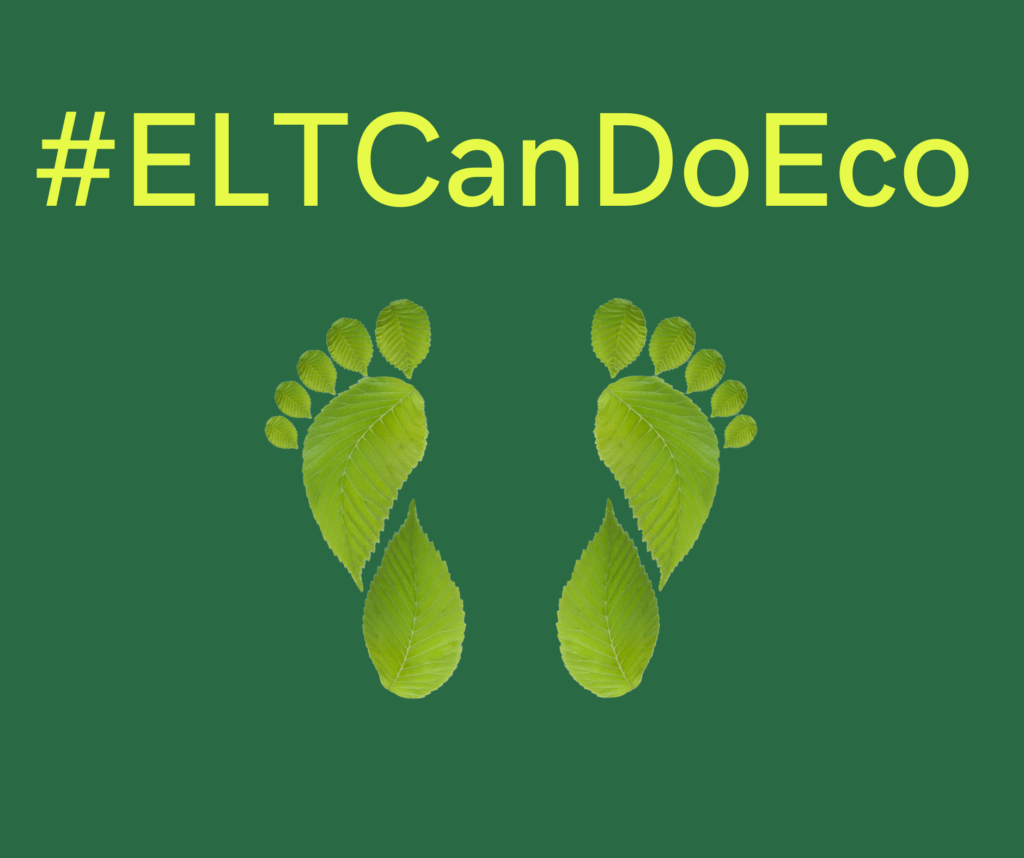Why introduce environmental issues in the ELT classroom?
Environmental issues are becoming more and more prominent in educational frameworks around the world. Ecoliteracy is gaining ground as one of the main competencies required of global citizens. It is seen as a mandatory cross-curricular component of many national curricula. And English, along with other languages, is seen as a key area where environmental competencies can be fostered and developed.
“English helps students develop the skills necessary to investigate, analyse and communicate ideas and information related to sustainability, and to advocate, generate and evaluate actions for sustainable futures.” (bold added)
(Australian national curriculum F-10)
The basic competences of an ecoliterate person marry very easily and closely with the communicative learning outcomes of a language classroom. If we look at the verbs that are being used (in bold both above and below) we see that they lend themselves easily to can-do type statements (such as the ones listed in the Common European Framework of Reference CEFR).
Let’s take a few examples:
An ecoliterate language student can…
- understand and explain the concept of sustainability and give concrete examples
- identify and describe potential local sustainability issues
- outline actionable solutions to address local issues of unsustainability
- describe the connections and relationships within a local ecosystem
- express appreciation of the natural world in their immediate surroundings
- advocate for protection/conservation of local ecosystems/species
Why write can-do statements?
Because can-do statements can support us all, teachers, trainers, materials writers, school owners, publishers, in overcoming a number of the obstacles that we might face when introducing environmental issues in the classroom. They help us highlight the valuable language skills that students are developing. They help us break down what can feel like a “huge” topic into manageable, and engaging, chunks. They offer a systematic framework which we can share with shareholders, as well as offering clear, attainable goals for our lessons.
So what’s with the #?
We’d like to start collecting some concrete can-do statements and map them onto practical lesson ideas. As this is a social media campaign, we’re asking for something short and sweet, but we’re also hoping to build this into a bank of ideas – with your help!
So here’s an example from us:
Students can understand and explain the concept of “greenwashing”: Ss write a definition of greenwashing and compare with the Greenpeace definition here). Ss think of more examples. Create a “rogues gallery” where ss share stories of greenwashing culprits. #ELTCanDoEco
Over to you …
Please use the hashtag (#ELTCanDoEco) to share anything that you think is pertinent: can-do statements, lesson/project ideas, examples of students’ work, thoughts and comments.
You can post your messages in the Facebook group, on Twitter (you can tag @eltfootprint), on LinkedIn or in the comments here. Thank you! We look forward to reading the messages and remember …
ELT Can Do Eco!

Katherine Bilsborough is an ELT author and teacher trainer. She is a co-founder of ELT Footprint, winner of the 2020 ELTons award for Innovation in Teacher Resources. She is passionate about educating teachers, creating ELT materials, and protecting the environment.

Ceri Jones is also one of the founding members of ELT Footprint. She is a teacher, teacher educator, online tutor and materials writer based in the South of Spain. She is currently interested in developing accessible, practical teaching frameworks that support classroom teachers as they address environmental issues in the language classroom.

